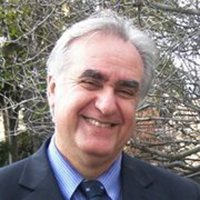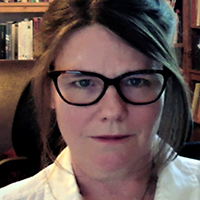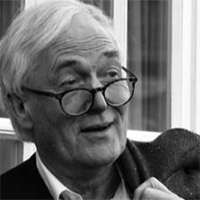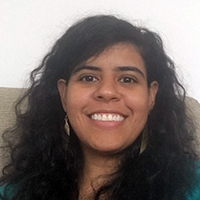Fake News: The Role of Suggestion in a Fast World
Panellists: José Carlos Calich, Jennifer Logue, David Morgan
Moderator: María Eugenia Tovar
LinkedIn Discussion Group
https://www.linkedin.com/groups/14048609/
Podcast
Ian Miller - Aspiring to Think In the Age of Anti-Thinking
https://talksonpsychoanalysis.podbean.com
The phenomenon of fake news has made us think about the mechanisms of massive influence on the population. The post-truth, the social credibility, the authority and the speed of dissemination of this type of information make it a fascinating topic for psychoanalysis. The influence of transference aspects on the leader, the open expression without criticism in social networks and the relationship with virtual reality are some psychoanalytic elements that could help understand their presence. This webinar will seek to expand the possibilities of our field to understand them.
Panellists
 José Carlos Calich (Brazil)
José Carlos Calich (Brazil)
Training analyst of the Porto Alegre Psychoanalytical Society (IPA) and present Director of Training of its institute. Professor at the New York University (NYU) in the Psychoanalysis Programme: NYU- Postdoc (since 2015). Member of the Scientific Committee of the Jean Laplanche Foundation - Institut de France, since 2009. Honorary Member of the Mexican Psychoanalytic Association (Mexico City, Mexico) since 2010. Editor of the International Journal of Psychoanalysis by Latin America. 2012-2017. At the moment, (since 2017), member of the Editorial Board of the IJP. Latin America Coordinator of the Working Party on Comparative Clinical Method (CCM), since 2007. Former President of the Porto Alegre Psychoanalytical Society 2020-2021
Title: A Psychoanalytic Glance at Fake News
Fake news is one of the most relevant communicational phenomena of the 21st century. The objective of this paper is a psychoanalytic reflection on the relationship and the individual and the collective psyche. A necessary connection with the culture of narcissism and its role as the prevailing myth of the culture is developed.
 Jennifer Logue (USA)
Jennifer Logue (USA)
Jennifer Logue is a Professor at Southern Illinois University Edwardsville, Programme Director of the Diversity and Equity in Education Graduate Programme, Department of Educational Leadership. She teaches core courses for the graduate programme and the undergraduate Honours Programme and Women’s Studies Minor. PhD. Philosophy of Education, Department of Educational Policy Studies, the University of Illinois at Urbana-Champaign (UIUC), with a Graduate Minor in Gender and Women’s Studies and certification from the Unit for Interpretative Theory and Criticism. M.A. Philosophy of Education, Department of Theory and Policy Studies in Education, Ontario Institute for Studies in Education; Collaborative Degree with the Women and Gender Studies Institute. Dr Logue is also a Candidate in the Adult Analytic Training Programme at the St. Louis Psychoanalytic Institute.
Title: Antisocial Media, Manufactured Hostility, and the Demise of Democracy: On the Importance of Developing Psychoanalytic Sensibilities in Education click here for paper
There is a growing consensus that social media platforms that enable the proliferation of fake news are one of the biggest threats to democracy. By engaging us by enraging us, disinformation campaigns successfully exacerbate existing ideological divides, impede collaborative critical thinking across differences, and ultimately undermine democracy. Much groundbreaking research across disciplinary divides identifies the targeting of our emotions via personalised social media messaging as the new frontier of propaganda. Because psychoanalysis sees emotional life as our most significant resource for learning to think and learning to think differently, I suggest that psychoanalytic insight is essential to the creation of new pedagogies that enable us to navigate better the post-truth crisis, this climate of hate and fear, the epidemic of affective information warfare we currently find ourselves in.
 David Morgan (UK)
David Morgan (UK)
He worked as a consultant psychotherapist in the NHS and in private practice as a Psychoanalyst for 25 years. He is chair of the Political Minds Seminars at the London Institute of Psychoanalysis. His recent research has focused on the psychological implications for whistle-blowers and the conditions, socially, politically and psychologically, under which a person may "turn a blind eye" or take on the responsibility of whistleblowing. He has also presented a podcast called Frontier Psychoanalyst. He is the editor of two books on The Unconscious in Political and Social Life (Phoenix).
Title: Most people don't really want to know the truth click here for paper
This presentation will provide some background to the phenomenon that most people don't really want to know the truth. They/we want the constant assurance that what they/we believe is the truth. I will focus on my work with Whisleblowers and social discloses and how they face us with unpalatable hidden realities.
Moderator
 María Eugenia Tovar:
María Eugenia Tovar:
She graduated from the Andrés Bello Catholic University (Venezuela) and is a Training Analyst at the Caracas Psychoanalytic Society. María Eugenia has different studies in community psychology and psychoanalysis in various academic institutions. She is in private practice in the city of Caracas.